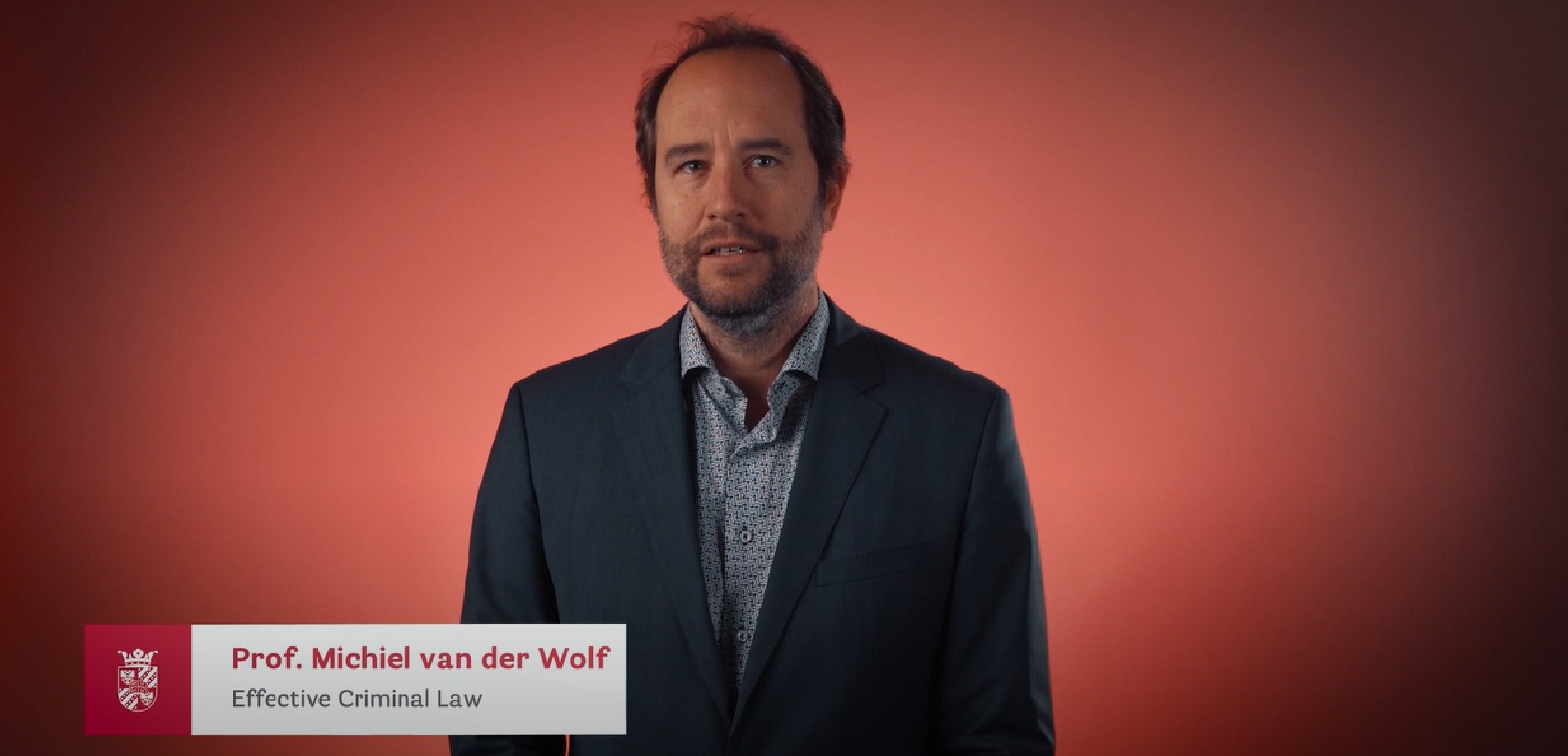Effective Criminal Law
Criminal law does not exist within a vacuum, but is very much subject to societal influences. Societal changes result in other requirements being imposed on criminal law and the application thereof, as well as on criminal investigation practice and criminal policy. Criminal law must translate these requirements into ‘effective criminal law provisions’. The research within this programme is intended to produce insights which, given these changes, boost the effectiveness of criminal law in modern Western countries such as the Netherlands.
The consequences for the effectiveness of criminal law of three, partly intertwined societal changes are the focus of this research programme.
The first change has to do with the globalization of society. Globalization has many consequences for criminal law. One direct effect is that the number of requests for international assistance is growing. The indirect effects are even more important. Comparisons with the criminal law frameworks in other countries are increasingly leading to adjustments in the national criminal law framework. International legal instruments which affect the operation of national substantive and procedural criminal law are becoming more and more relevant. It sometimes seems that the ECtHR’s case law has partly supplanted legislation as the chief reference point for applying procedural criminal law. Further development of supra-national criminal law appears to only be a matter of time.
The second change lies in the changing role of government, partly due to the internationalization of Dutch society. In the past, the application of criminal law was predominantly viewed as a task for the national government, with policing being a responsibility of national and local governments. This no longer holds true, however. European government bodies also have tasks relating to punitive legal enforcement. Numerous private actors, too, have now become involved in policing activities and legal enforcement. The increasing importance of the position of victims is consistent with this development, with victims no longer content to passively watch how the government performs its criminal law duties, but instead desiring and insisting on an active role for themselves in ensuring that the government properly enforces criminal provisions. The interests of the victim have already caused the characterization of criminal law as a ‘last resort’ to be outdated. Instead, it is thought that criminal law should be applied if this may serve to effectuate victims’ rights. These changes also entail instruments from other legal areas (besides criminal law) being used in dealing with crime. Criminal law policy is not strictly the same as criminal policy.
Lastly, the growing significance of science and technology in society represents a third change. DNA testing, for example, has not only substantially bolstered the fact-finding possibilities, but also had consequences for criminal investigation practice. Technological developments have generated new forms of crime, as well as provided possibilities for fighting crime. This change is related to the two changes mentioned earlier. The international nature of internet crime has brought its own challenges for substantive and procedural criminal law; adequate criminal laws and the enforcement thereof in other countries is also a Dutch interest (‘no safe havens’). Further, fact-finding is often almost impossible without the compulsory cooperation of third parties (service providers and others), thereby also ensuring that potential and actual victims have an added interest in the criminal law being deployed. Developments in the multimedia and social media arenas have raised questions about different aspects of the organization of the enforcement, investigation, prosecution and adjudication of criminal facts.
This programme’s general research question is formulated as follows: How can, in light of the changes due to globalisation, the changing role of government and the growing significance of science and technology, the effectiveness of criminal law be guaranteed and improved?
The programme’s focus is on a rational, doctrinal and practice-based approach with regard to its subject, that is the current law – substantive and procedural law – and its development, both on the national and international level.
The classic method of legal research will be applied in this research programme, which entails the analysis of national and international legal instruments, preparatory papers and case law, partly based on the literature published about these sources.
The research programme will also be carried out using quantitative and qualitative empirical research and theoretical criminological research. The programme will therefore be designed to obtain, process and analyse empirical data on the nature, scope and causes of crime and insecurity, as well as the motives of perpetrators and the relation to the approach to and regulation thereof, for the purpose of encouraging criminological theoretical development and sharpening and/or supplementing existing theories.
Where possible and desirable, the classic legal research method and the criminological, empirical method will be combined, especially in relation to testing of legal concepts to the social reality and assessing the law’s effectiveness.
| Last modified: | 26 September 2024 2.02 p.m. |

